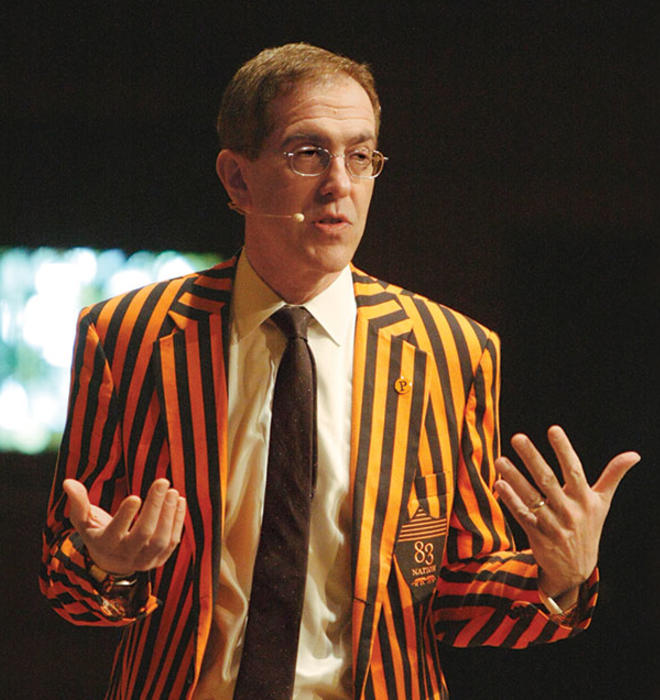
The President Speaks
Baker Rink’s days may be numbered, President Eisgruber ’83 said during his annual talk with alumni during Reunions in Richardson Auditorium.
Asked about possible locations for a new residential college that will be required as the University begins to plan a 500-student expansion, Eisgruber said no site has been selected yet. But he said a residential college could be located in the area around the rink, which opened in 1923 and is home to the men’s and women’s hockey teams. A new rink is a possibility, he said, describing the current structure as beautiful but “not a first-rate hockey facility or a first-rate rink right now.”
Options also include building on the eastern side of Washington Road or converting existing dorms into a new residential college and constructing new upperclass housing in another location, he said.
Among other topics Eisgruber addressed were:
Sports safety: Eisgruber said the presidents of the Ivy schools review concussion data for all sports twice yearly, have enacted rule changes, and react “much more proactively” than in years past. “Football and our intercollegiate athletic program are an important part of the student experience. We can recognize that there’s risk and at the same time do what’s appropriate in order to accommodate and respond to that risk.”
The decision to end the sprint football program: The team “had been heavily reliant on players who had not been trained to play football,” he said. “We could not continue that program the way it had been operating without unacceptable risk of catastrophic injury to the participants.”
The campus debate over Woodrow Wilson 1879’s legacy: “One of the reasons why I’m proud of what this community did and I’m proud of the process that we went through is that we were able to take a very emotional and polarized issue at a very emotional and polarized moment and bring reason and deliberation to it.”
Study abroad: Almost a decade after a University report cited the “expectation” that every undergraduate should experience another country, the percentage who have spent four weeks or more abroad has increased from 38 to 60 percent. But the number has “plateaued a bit,” Eisgruber said, and Princeton is focusing on factors that discourage juniors from pursuing opportunities abroad.






No responses yet